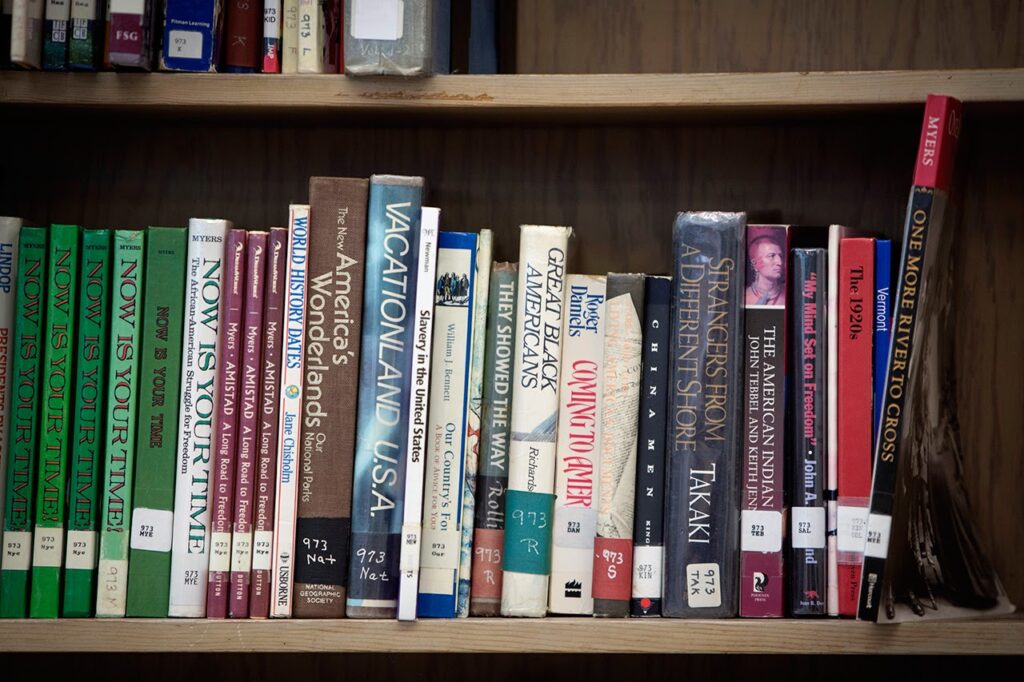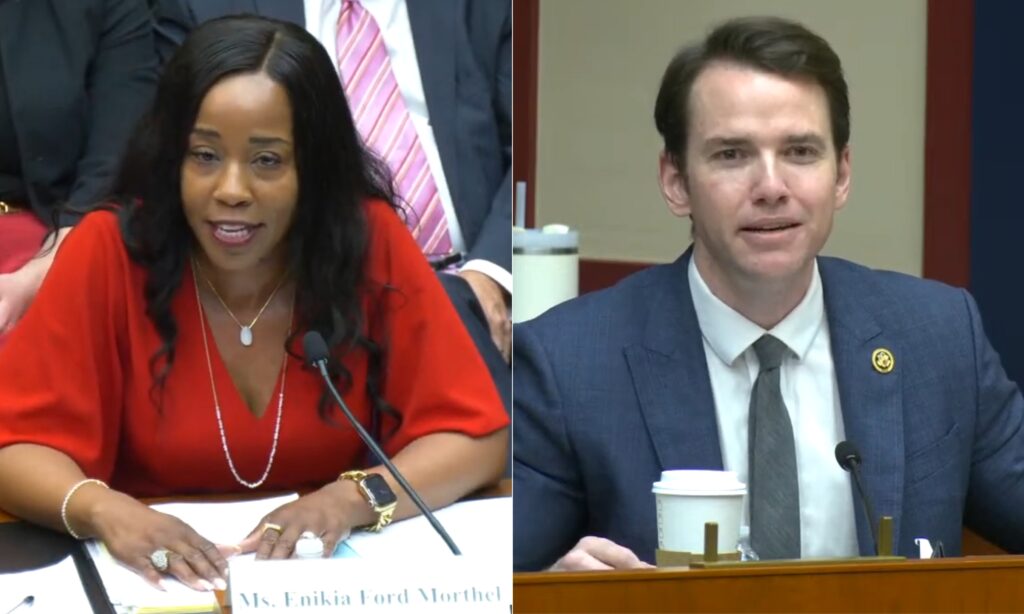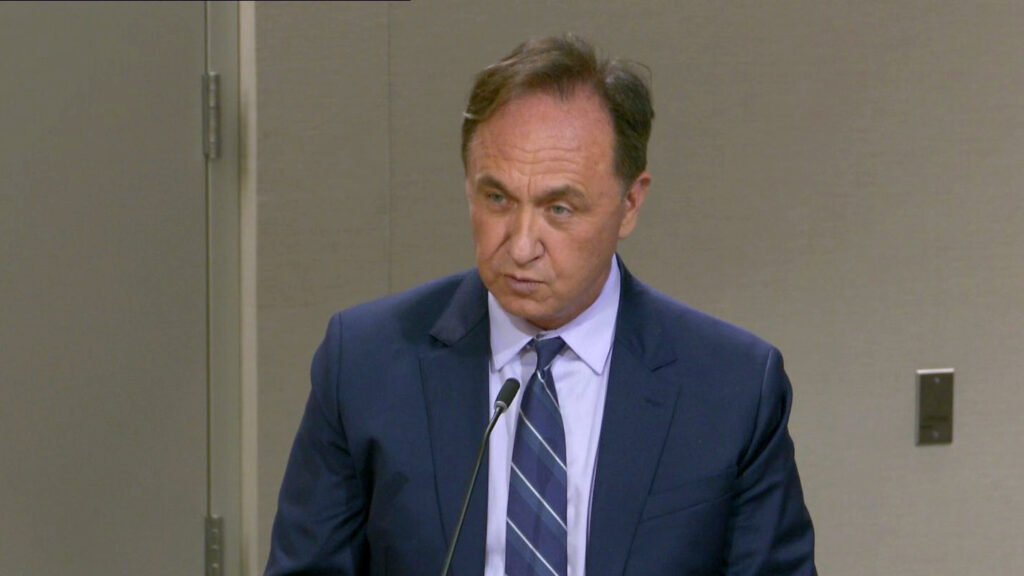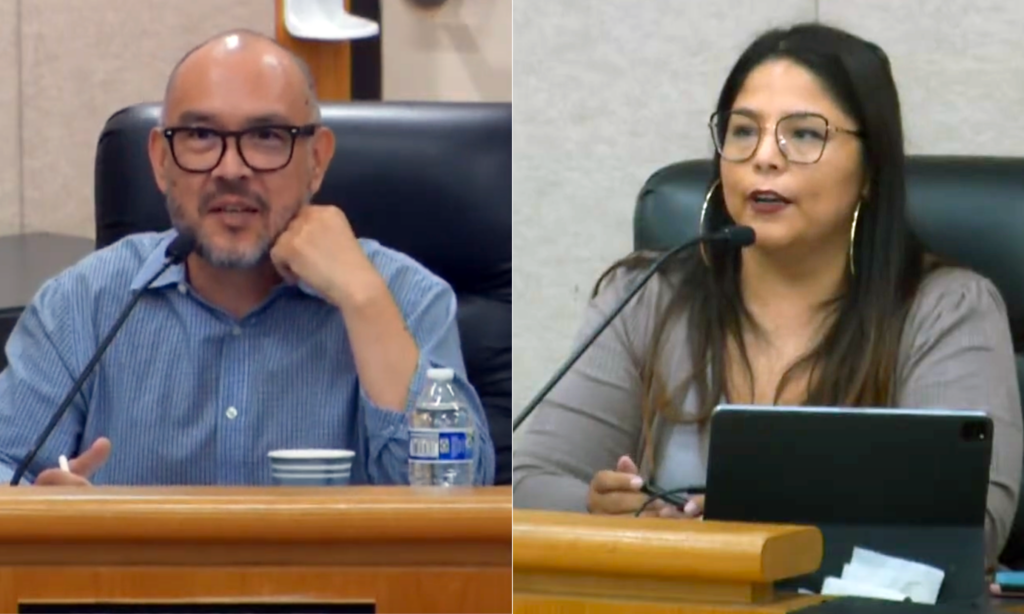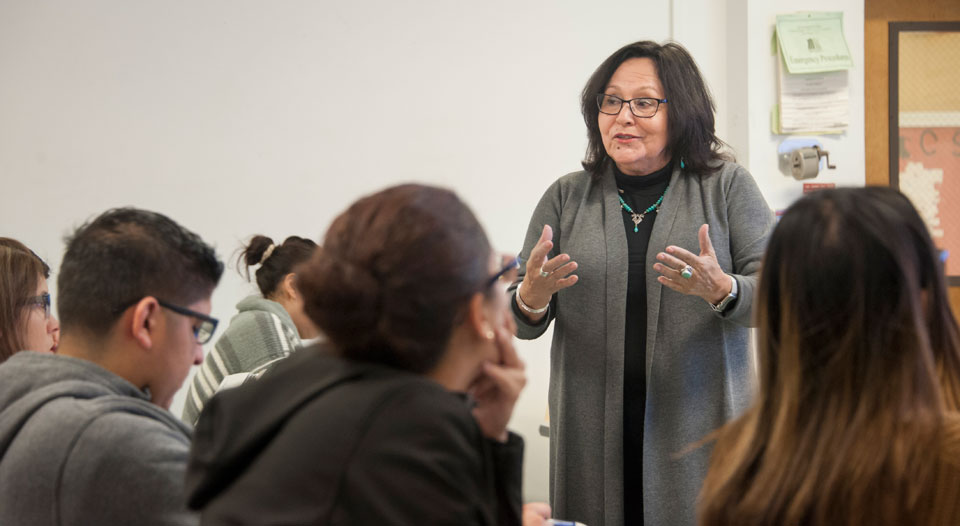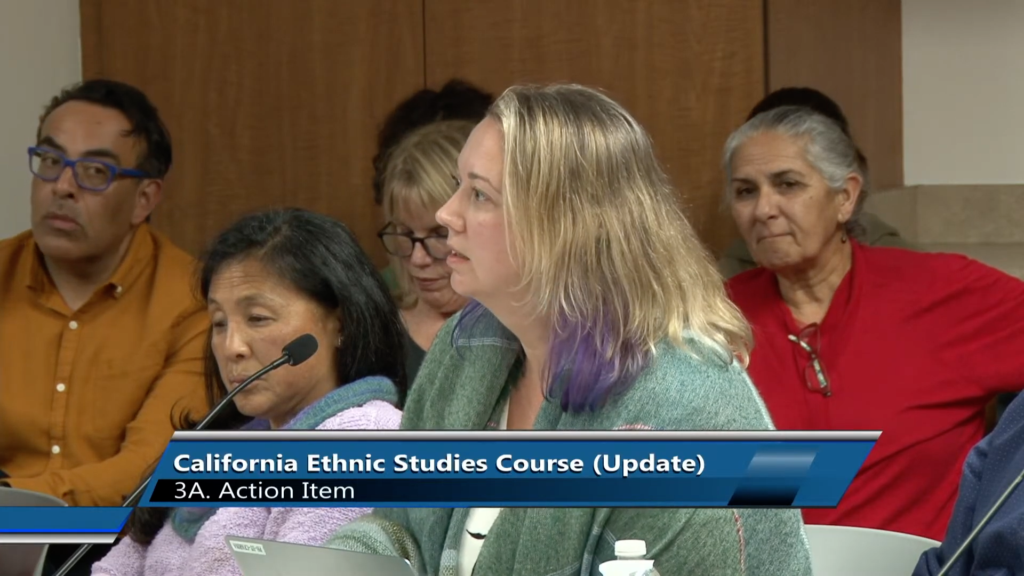
Jeff Kim, a teacher at Cambridge Virtual Academy in Anaheim Union, is teaching the first-ever Korean American ethnic studies course for high school students.
Credit: Courtesy of Jeff Kim
Jeff Kim, a world history teacher in Anaheim Union High School District, had long dreamed about how a Korean American studies course could help his students connect with their heritage. But it was the surge of hatred against Asian Americans during the pandemic that made him realize just how urgently the class was needed.
Shortly before the pandemic reached the U.S., a seventh grade student came up to him before class and expressed concern that she or her family might face anti-Asian violence because of this new virus in China. Although Kim had experienced discrimination in his own life, he wanted to reassure her and so told her that in California, a relatively liberal state, and Orange County — where 23% of students are Asian — she and her family would not face those problems.
“I just said, ‘We live here in California, I don’t see that type of violence happening to Asian Americans here,’” Kim said. “I gave her the wrong information.”
That Kim was wrong became apparent in the early days of the pandemic, during which time a surge of xenophobic rhetoric scapegoated Asian Americans as the cause of the pandemic. It was both a local and national issue. Anti-Asian hate crimes doubled in California in 2020, compared with the prior year. In Orange County, the number of hate incidents against Asian Americans jumped 1,800% in 2020, according to the annual Orange County Hate Crime Report. News of Asian American spa workers in Georgia who were killed in a shooting rampage was a turning point for Kim.
He asked himself, “What is a way I can respond with love and wisdom?”
Fast-forward to this year – the Anaheim Union High School District has launched a first-of-its-kind high school ethnic studies course focused on the experiences of Korean Americans.
For the past three years, Kim worked with district leaders in Anaheim Union High and scholars of Korean American history — many of whom are based in Southern California — to pioneer the first high school course dedicated to Korean American history. It’s a historic moment in the development of Korean American studies, which has been maturing as an academic field in recent decades.
“It’s huge,” said professor Edward Chang, the founding director of the Young Oak Kim Center for Korean American Studies at University of California Riverside. “It’s a starting point, and I’m hoping it will spread to other school districts.”
Chang is the co-author of “Korean Americans: A Concise History,” a book that covers leading figures and highlights in Korean American history in a little over 100 pages, a book he said he conceived with future K-12 students in mind, and which now serves as a textbook for Anaheim Union High’s new course.
The course debuted earlier this month as a virtual course through Anaheim Union High’s Cambridge Virtual Academy and is open to all high school students in the district.
Building the curriculum
The Korean Consulate General in Los Angeles sponsored the development of the curriculum; Kim worked with Grace Cho, a professor in Cal State Fullerton’s department of secondary education, to come up with the components of the proposed course, which consists of seven lessons adapted to California state standards, and available online.
The lessons begin with the earliest wave of 19th-century Korean immigrants and end with K-pop’s global dominance. There are lessons on the struggles and triumphs of key figures, such as war hero and humanitarian Col. Young Oak Kim and Dosan Ahn Chang Ho, the founder of the first American Koreatown.
It’s a class for everyone, said Kim. Other ethnic groups can connect with Korean stories of resilience, such as how gold medal-winning Olympic diver Sammy Lee was barred from practicing in public pools because of his race or how most Koreans were barred from immigrating to the United States before 1965.
“This class is not just about Korean Americans. It’s U.S. history, but through the eyes of Korean Americans,” said Cho. “By learning other ethnic groups’ history, you get to expand your perspectives and views.”
The course will enable students to fulfill the ethnic studies requirement that will go into effect for all California high school students in two years. But many of the first 34 students who signed up for the course simply wanted to learn more about their own cultural background.
Celine Park, a freshman at Oxford Academy, said this class is a unique opportunity for second-generation Korean Americans like her who haven’t had a way to synthesize Korean and American history in their lives.
“I wanted to meld these two together, to make these connections between the two histories and bond my own identity, while helping other second-generation Korean Americans like me,” Park said.
It has also inspired pride in students’ families. Yuri Yamachika, a first-year student at Oxford Academy, said that her mom, a first-generation Korean American, didn’t have many opportunities to learn about her culture beyond what her own parents shared with her.
“She was excited and proud that we have a course to learn about our own heritage,” said Yamachika. “She’s glad I took it.”
Parents are a crucial firsthand source of information in the course. Understanding that every student has an ethnic heritage is a key part of the ethnic studies discipline. Kim encouraged his students, no matter their background, to learn and reflect on their families’ stories.
“Sometimes parents haven’t had a chance to tell these stories, because there’s a language barrier or a cultural barrier,” Kim said. “But if I make it a class assignment, they’re much more inclined to ask — and parents are much more inclined to tell their story.”
That makes the course a draw to students — including those who aren’t Korean American.
When Karina Soliman interviewed her father for a class assignment, she learned about the discrimination he faced as an Egyptian in the post-9/11 era, when Arab Americans were widely stereotyped as terrorists. The senior at Savanna High School connected this to the stereotypes that other ethnic groups in the U.S. have faced. She hopes the course will help her model the importance of respecting others’ stories.
“I’ve grown more cognizant of other cultures and other people, and realizing how important that is,” Soliman said.
Students in Kim’s class will also participate in a civic project of students’ own choosing. This is a facet that has earned the notice of the California Asian American & Pacific Islander Legislative Caucus. In a letter of support, Assemblymember Evan Low and state Sen. Dave Min praised the course for “allowing students to foster collaborations and partnership with Asian American organizations.”
This new course also represents a high-water mark for scholars who have promoted Korean American studies. It was only recently that there was a critical mass of scholars interested in Korean American history, Chang said. There’s a growing interest in the field in higher education, but promoting it at the K-12 level has been a major goal of scholars.
Korean American history didn’t make it into the early drafts of the state’s ethnic studies model curriculum, but scholars pushed back, said Cho. The state’s model curriculum now includes a lesson on the L.A. civil uprising of 1992, known as Saigu or 4/29 among Korean Americans, which marked a turning point in the community’s identity.
Chang said that he looks forward to students like Kim arriving at college. He has seen students’ eyes widen as they learn about their own history. He believes college is too late for that experience.
Kim said in the early days of deciding to push forward with the curriculum, he felt like he was taking a big risk. He worried about how the course might be misunderstood, but he feels like it has paid off. Now he reminds his students of their own role in blazing a trail for the next generation of students. His students are already eager to see that continue.
Soliman has advice for teachers or administrators considering a course like this: “Don’t be afraid to put it out there, or to start a conversation for that kind of course to be created because it can greatly impact and inform a lot of students on topics that they’re not traditionally going to learn about until college.”

